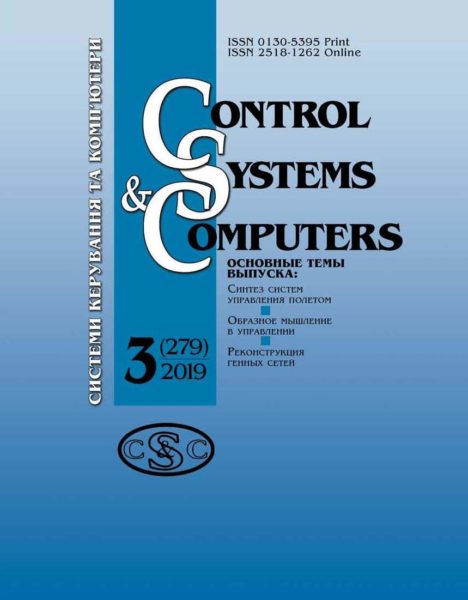Control Systems and Computers, N4, 2017, Article 9
DOI: https://doi.org/10.15407/usim.2017.04.076
Upr. sist. maš., 2018, Issue 4 (270), pp. 76-82.
UDC 681.513.6
Antoniuk Yaroslav M., Researcher Associate, International Research and Training Centre of Information Technologies and Systems of the NAS and MES of Ukraine, Glushkov ave., 40, Kyiv, 03187, Ukraine, ant@irtc.org.ua
Prus Tetyana N. , Ingeneer-programmer, International Research and Training Centre of Information Technologies and Systems of the NAS and MES of Ukraine, Glushkov ave., 40, Kyiv, 03187, Ukraine, prus@irtc.org.ua
Technological Aspects of Preparing the Training Content for Support Mass Life-Long Learning
Introduction. Modern education is based on the paradigm of mass life-long learning, which requires the integration of promising information and communication technologies and classic hardware-software solutions for the production of the desktop applications. The pace of development of modern technologies is ahead of the opportunity not only to use them, but, sometimes, and to notice their appearance. In the flow of newest hardware, software and methodologies, there are those that can be useful for the production of traditional educational content. Here we considered the problems of preparing such incremental solutions. Note that the educational content is a collective concept and includes not only the problems of preparing quality textbooks, but also a significant number of other educational applications: educational multimedia, virtual reality technologies for educational purposes, and others. Thus, the current problems of creating the objects of virtual reality (VR) are described.
Purpose. The state of the technologies of life-long education in Ukraine is in the conditions of possible using the objects of virtual reality in any forms of education of the learning process without specifying the requirement of the subject area. The task of the research is to develop a universal methodology for using BP facilities in the institutions of Ministry of Education and Science of Ukraine.
Methods. The principle method of creating VR objects and a basic description of VR-laboratories are shown.
Results. The urgency of this task underscores the state of this field of the public sector at all levels of accreditation. The adoption of the draft “Law on Education” forms the actual principles of the educational policy and is designed to release the consciousness of the trainees and to prepare them for the adequate perception of the subjects to the depth necessary to acquire the practical skills that are realized in the modern world, in the conditions of the developing economy of the country. In addition to the social cause, the need to fill this niche in terms of IT progress is evident, which will determine the development of the methodological and technological base of any institution of NAS and MES of Ukraine.
Download full text! (In Russian)
Keywords: life-long education, educational content, multimedia content, virtual reality, VR-laboratory.
- https://ru.wikipedia.org/wiki/ A virtual reality. (In Russian).
- Myron, W. Krueger, 1991. Artificial Reality, Artificial Reality II, Addison-Wesley Professional; 2 edition June, 14, 304 p. (In Russian).
- Govorunov, A.V. Chelovek v situatsii virtualnoy realnosti, http://anthropology.ru/ru/text/govorunov-av/chelovek-v-situacii-virtualnoy-realnosti. (In Russian).
- Kirillov, D. Virtualnaya realnost v obrazovanii: Formatyi, http://www.edutainme.ru/post/vr-formats/ (In Russian).
- Gritsenko, V.I., Shlezinger, M.I., 2011. “Formalnyie modeli, zadachi i algoritmyi obraznogo myishleniya”, Avtomatika-2011/AUTOMATICS-2011, Materiali 18-yi mizhnorodnoyi konferentsiyi z avtomatichnogo upravlinnya (Lviv 28–30 sept. 2011), pp. 110–113. (In Russian).
- Ochkova, E. 9 sfer primeneniya virtualnoy realnosti: razmery ryinka i perspektivy, https//vc.ru/p/vr-use
- Rozenson, I. A., 2006. Osnovyi teorii dizayna, Piter, pp.153–156, 224 p. (Uchebnik dlya vuzov)., Proishozhdenie ponyatiya “virtualnaya realnost”. (In Russian).
- Proekt Zakona ob obrazovanii: printsipyi obrazovatelnoy politiki, http://www.kmu.gov.ua/control/ru/publish/ article?art_id=248621505&cat_id=246935189. (In Russian).
- Manako, A.F., 2014. “Strategichni pitannya vprovadzhennya IKT u navchalniy protses”, Informatika ta Informatsiyni tehnologiyi v navchalnih zakladah, N5. (In Russian).
- Gritsenko, V.I., Manako, A.F., Sinitsa, E.M., 2013. “Nepreryivnoe obrazovanie i innovatsionnyie elektronnyie nauchno-obrazovatelnyie prostranstva”, V kolektivniy monografiyi “Novyie informatsionnyie tehnologii v obrazovanii dlya vseh: nepreryivnoe obuchenie” [Avtorskiy kolektiv: V.I. Gritsenko ta In.], K.: AkademperIodika, pp. 121–205. (In Russian).
Received 12.08.2017



